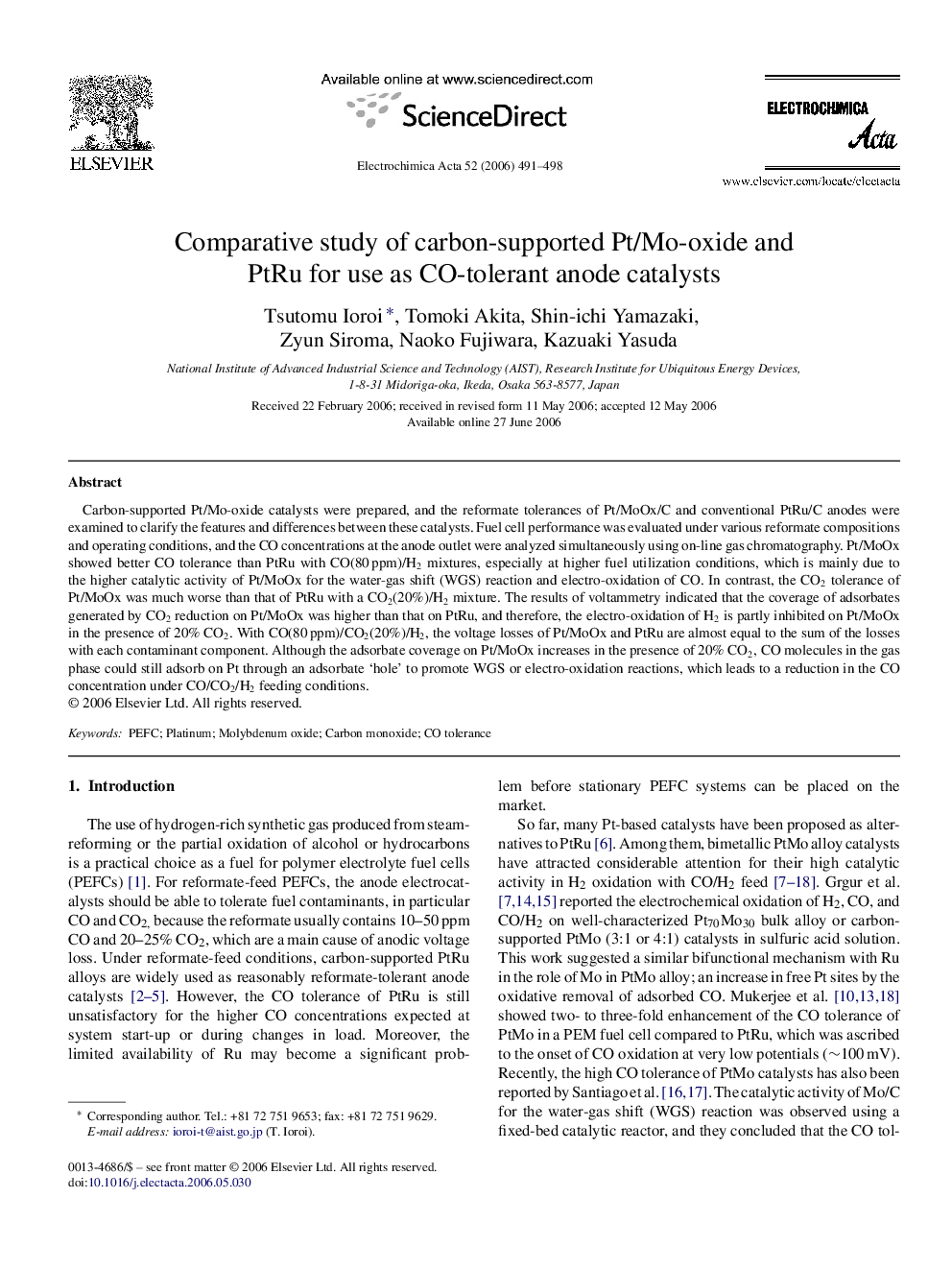| Article ID | Journal | Published Year | Pages | File Type |
|---|---|---|---|---|
| 194336 | Electrochimica Acta | 2006 | 8 Pages |
Carbon-supported Pt/Mo-oxide catalysts were prepared, and the reformate tolerances of Pt/MoOx/C and conventional PtRu/C anodes were examined to clarify the features and differences between these catalysts. Fuel cell performance was evaluated under various reformate compositions and operating conditions, and the CO concentrations at the anode outlet were analyzed simultaneously using on-line gas chromatography. Pt/MoOx showed better CO tolerance than PtRu with CO(80 ppm)/H2 mixtures, especially at higher fuel utilization conditions, which is mainly due to the higher catalytic activity of Pt/MoOx for the water-gas shift (WGS) reaction and electro-oxidation of CO. In contrast, the CO2 tolerance of Pt/MoOx was much worse than that of PtRu with a CO2(20%)/H2 mixture. The results of voltammetry indicated that the coverage of adsorbates generated by CO2 reduction on Pt/MoOx was higher than that on PtRu, and therefore, the electro-oxidation of H2 is partly inhibited on Pt/MoOx in the presence of 20% CO2. With CO(80 ppm)/CO2(20%)/H2, the voltage losses of Pt/MoOx and PtRu are almost equal to the sum of the losses with each contaminant component. Although the adsorbate coverage on Pt/MoOx increases in the presence of 20% CO2, CO molecules in the gas phase could still adsorb on Pt through an adsorbate ‘hole’ to promote WGS or electro-oxidation reactions, which leads to a reduction in the CO concentration under CO/CO2/H2 feeding conditions.
